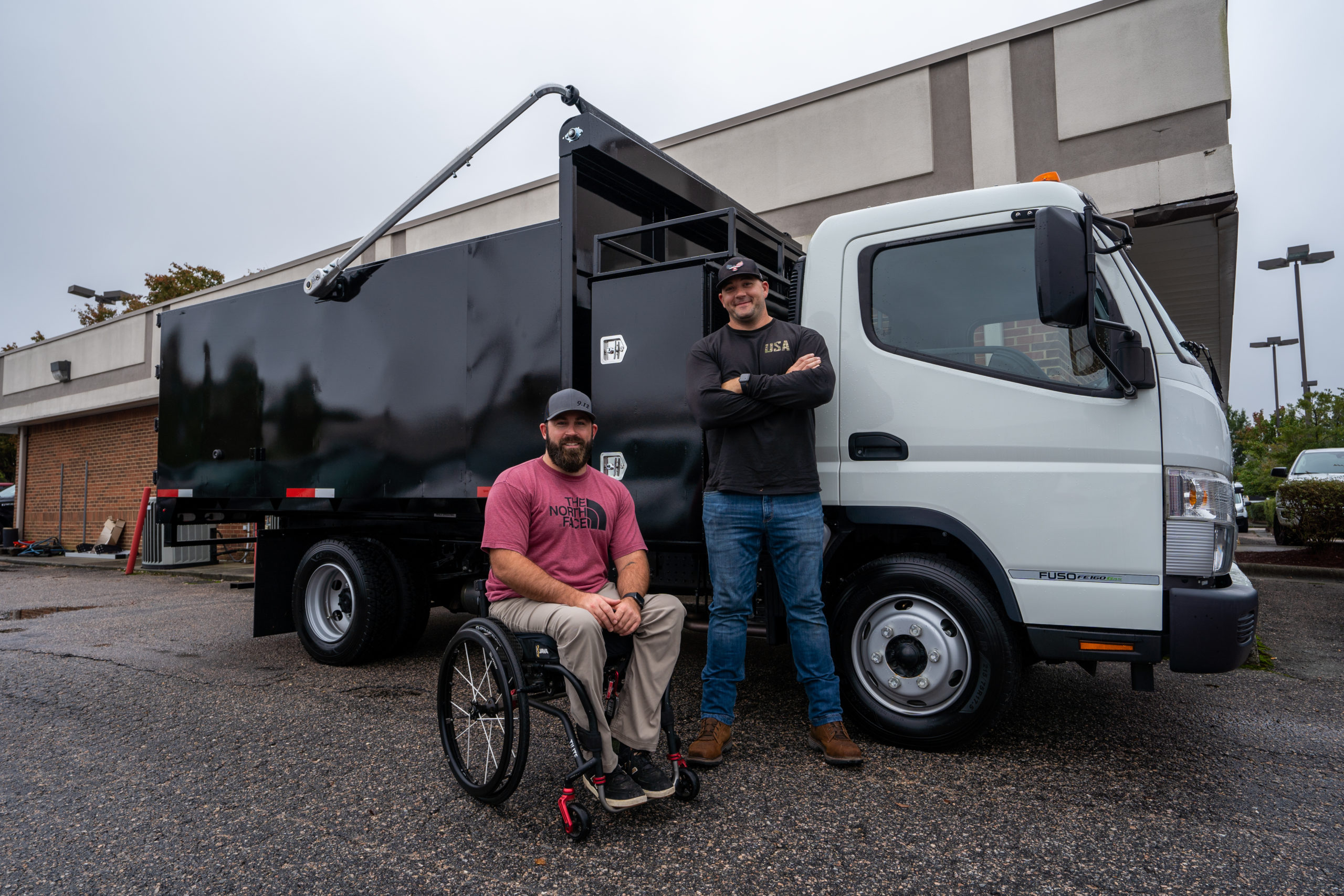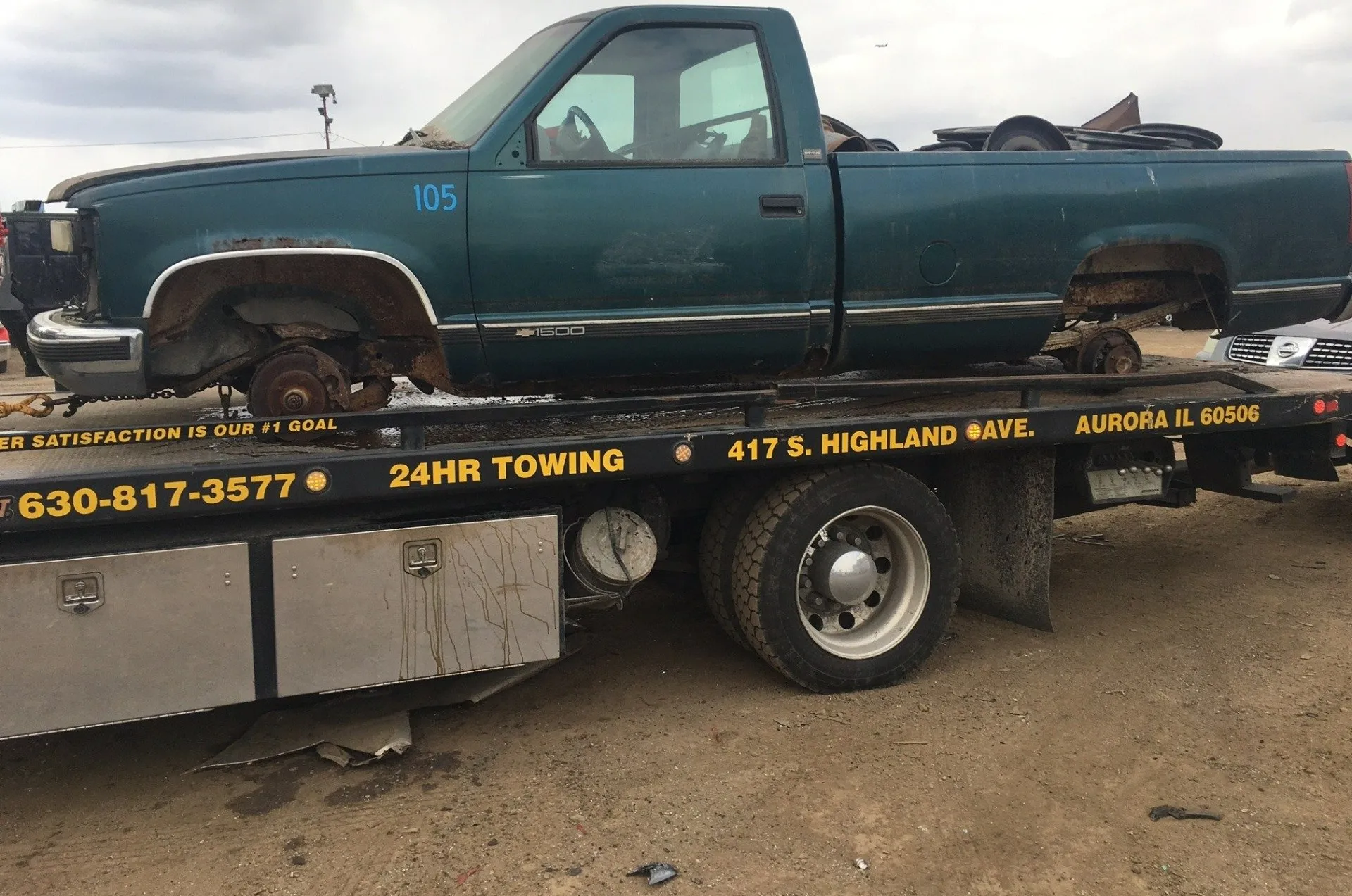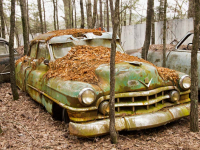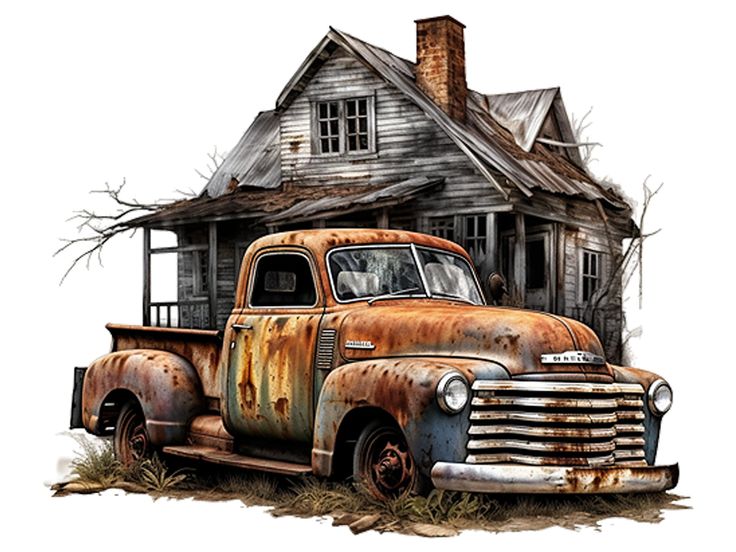Junk Trucks For Sale: Unearthing Value in the Automotive Afterlife sale.truckstrend.com
The phrase "junk trucks for sale" might conjure images of rusted-out hulks destined only for the crusher. However, for a savvy individual, a junk truck can be a treasure trove of opportunity, a valuable source of parts, a challenging restoration project, or even a profitable venture. Far from being worthless, these vehicles represent the automotive afterlife, offering unique potential for those who know how to unlock it. This comprehensive guide will delve into the world of junk trucks, exploring their definition, value propositions, where to find them, critical considerations before buying, and the practical steps to navigate this often-overlooked segment of the automotive market.
What Exactly Are "Junk Trucks"?
Junk Trucks For Sale: Unearthing Value in the Automotive Afterlife
Before diving into the "for sale" aspect, it’s crucial to define what constitutes a "junk truck." Unlike a merely "used" truck that might still be roadworthy but has high mileage or minor issues, a junk truck typically falls into one or more of the following categories:
- Non-Running or Severely Damaged: The engine might be seized, the transmission gone, or it’s been in a major accident resulting in structural damage.
- Salvage The vehicle has been declared a "total loss" by an insurance company due to accident, flood, fire, or theft, meaning the cost of repair exceeds a certain percentage of its market value. While potentially repairable, getting it road-legal again can be a complex and expensive process.
- High Mileage and Extreme Wear: The vehicle has simply reached the end of its practical road-life, with components failing due to age and wear.
- Abandoned or Unclaimed: Trucks left at tow yards, impound lots, or mechanic shops for extended periods, eventually sold to recover storage fees.
- Parts Donor: Specifically acquired to strip for components that are still functional and valuable.

Essentially, a junk truck is a vehicle that, for various reasons, is no longer considered practical or economical to operate as a standard, road-legal vehicle in its current state. However, its individual components, its raw materials, or even its underlying structure can still hold significant value.
Why Buy a Junk Truck? The Unexpected Value Proposition
The decision to purchase a junk truck isn’t for everyone, but for specific purposes, it can be incredibly advantageous. Here’s why these seemingly valueless vehicles are often sought after:
- Parts Donor: This is arguably the most common and compelling reason. Sourcing individual parts for a running truck can be incredibly expensive, especially for older or rarer models. A junk truck of the same make and model can provide a wealth of usable components – from engines, transmissions, and axles to interior parts, body panels, and electrical components – often at a fraction of the cost of new or even refurbished parts.
- Scrap Metal Value: For metal recyclers or individuals with access to scrap yards, the sheer weight of a truck translates directly into cash. While the per-pound rate for scrap metal isn’t high, a full-sized truck can weigh several tons, adding up to a respectable sum. This is often the ultimate fate of a truck after all usable parts have been salvaged.
- Project Vehicle/Restoration Base: For skilled mechanics, fabricators, or DIY enthusiasts, a junk truck can be the perfect foundation for a custom build. This could range from an off-road beast, a specialized farm vehicle, a unique hot rod, or a full, frame-off restoration of a classic model. The lower initial cost frees up budget for high-quality parts and custom work.
- Farm or Off-Road Use: In rural areas, a non-road-legal junk truck can find new life as a utility vehicle on private property. Without the need for registration, insurance, or roadworthiness inspections, these trucks can be invaluable for hauling feed, equipment, or navigating rough terrain, provided they are mechanically sound enough for their intended purpose.
- Business Opportunity: Savvy entrepreneurs can turn buying junk trucks into a profitable business. This involves purchasing non-running or damaged vehicles at low prices, systematically dismantling them, testing and cataloging usable parts, and then selling those parts individually. The profit margin on parts can be substantial, especially for in-demand components.


Where to Find Junk Trucks For Sale
The market for junk trucks is diverse and often requires a bit of detective work. Here are the primary avenues to explore:
- Online Marketplaces:
- Craigslist & Facebook Marketplace: Excellent for finding private sellers looking to offload old, non-running vehicles. Use keywords like "parts truck," "non-running," "salvage title," or "project truck."
- eBay Motors: Features a dedicated "Salvage & Parts" section, often with nationwide listings from private sellers and dealerships.
- Specialized Forums & Groups: Online communities dedicated to specific truck makes (e.g., Ford F-Series forums, Chevy truck groups) often have "for sale" sections where members sell parts trucks.
- Salvage Auctions:
- Copart & IAAI (Insurance Auto Auctions): These are the largest public auto auctioneers specializing in salvage, damaged, and wrecked vehicles. You’ll find thousands of listings, often with detailed damage reports and photos. You usually need to register and may require a dealer license for some auctions, but many are open to the public.
- Local Impound & Government Auctions: Police impound lots, city/county surplus departments, and even state agencies periodically auction off unclaimed or retired vehicles, often including trucks.
- Local Junkyards & Salvage Yards: These businesses exist to buy and sell parts, and they often have complete "parts trucks" on site that you can purchase whole. Developing a relationship with local yard owners can give you early access to new arrivals.
- Tow Lots & Mechanic Shops: Unclaimed vehicles often sit at tow lots or mechanic shops. If storage fees accumulate beyond the vehicle’s value, the shop or lot owner may be willing to sell it for a low price to recover costs.
- Private Sellers: Keep an eye out for "for sale" signs on old trucks sitting in fields or driveways. A polite inquiry might lead to a deal. Spreading the word among friends and family can also unearth hidden gems.
Important Considerations Before You Buy
Purchasing a junk truck is not the same as buying a used car. Due diligence is paramount to avoid costly mistakes.
- Define Your Purpose: Be crystal clear about why you’re buying the truck. Is it for a specific part? To scrap? A long-term project? Your purpose will dictate what kind of damage is acceptable and what you should prioritize during inspection.
- Budget Beyond the Purchase Price: The sticker price is just the beginning. Factor in:
- Transportation: How will you get a non-running truck home? Towing, flatbed rental, or professional transport can be expensive.
- Storage: Do you have a suitable place to store a large, non-operational vehicle? Check local zoning laws.
- Tools & Equipment: Do you have the necessary tools to dismantle it or work on it?
- Disposal Costs: If you’re only after a few parts, how will you dispose of the remaining shell?
- Thorough Inspection (Even if Non-Running):
- Frame Damage: Crucial for project trucks. Significant frame damage can render a vehicle useless for anything but scrap.
- Engine & Transmission: Look for visible cracks, leaks, or missing components. Check oil and coolant levels (if possible). Even if non-running, a clean engine bay might indicate less severe issues.
- Rust: Surface rust is common, but widespread structural rust (frame, suspension mounting points) can be a deal-breaker.
- Completeness: Are the parts you need still on the truck? Are major components missing?
- Interior/Exterior Condition: Less critical for parts or scrap, but important for restoration projects.
- Under the Hood: Look for signs of fire, flood, or rodent damage.
- Wheels/Tires: Are they inflated enough to roll for loading?
- Title and Documentation: This is perhaps the most critical aspect.
- Salvage Understand the implications. You likely won’t be able to register it for road use without extensive repairs and inspections.
- Clean A non-running truck with a clean title is a rarity but a bonus if you plan to restore it.
- Bill of Sale: Always get a detailed bill of sale, even if no title is present (e.g., for scrap or parts only).
- Lien Check: Ensure there are no outstanding liens on the vehicle that could complicate ownership. Avoid trucks without any documentation unless you’re absolutely certain it’s for scrap only and local laws permit it.
- Transportation Logistics: Plan this before you buy. Will a standard tow truck work, or do you need a flatbed? What’s the access like at the pickup and drop-off locations?
The Buying Process: A Step-by-Step Guide
- Research and Identify Needs: Know what make, model, and year range you’re looking for, and what specific parts or condition you require.
- Locate Potential Trucks: Use the sources mentioned above. Set up alerts on online marketplaces.
- Initial Vetting: Contact sellers, ask detailed questions about the truck’s history, known issues, and title status. Request photos or videos.
- On-Site Inspection: If the truck meets initial criteria, arrange an in-person inspection. Bring a flashlight, a magnet (to check for body filler), and potentially a trusted mechanic if you’re serious about a project truck. Don’t rush.
- Verify Documentation: Examine the title or any existing paperwork. Compare VINs on the document to the vehicle’s VIN plate.
- Negotiate Price: Be prepared to haggle. The seller might just want it gone. Base your offer on your assessment of its value (parts, scrap, project potential) and the costs involved.
- Arrange Payment and Title Transfer: Use secure payment methods. Ensure the title is properly signed over to you (if applicable) and you receive a detailed bill of sale.
- Organize Transportation: Schedule your tow or flatbed service. Confirm access and timing with the seller.
Common Challenges and Solutions
- Hidden Damage: A major risk. Solution: Thorough inspection. Ask detailed questions. If possible, get the seller to agree to basic checks (e.g., turning the engine over by hand if it’s seized). Assume the worst.
- Logistical Headaches: Transporting a heavy, non-running vehicle can be complex. Solution: Plan logistics before purchase. Get quotes from multiple towing companies. Ensure your storage location is compliant.
- Legal/Title Issues: Buying a vehicle without a proper title can lead to serious legal problems. Solution: Never buy a vehicle without verifying its legal status. Always get a bill of sale. If a title is missing, understand your state’s laws for obtaining a salvage or junk title.
- Overspending: It’s easy to get carried away with a project. Solution: Stick to your budget. Accurately estimate all associated costs (transport, parts, labor, disposal) before committing.
- Disposing of Leftovers: If you’re just taking a few parts, you’ll be left with a shell. Solution: Have a plan. Contact local scrap yards for their rates and pickup services. Some yards require the title, even for scrap.
Price Guide for Junk Trucks For Sale
The price of a junk truck varies wildly based on make, model, year, condition, location, and the perceived value of its components. This table provides ranges and factors rather than definitive prices, as each junk truck is unique.
| Condition/Purpose Category | Typical Price Range (USD) | Key Factors Influencing Price |
|---|---|---|
| Pure Scrap Value | $150 – $600 | Weight of vehicle, current scrap metal prices, presence of valuable metals (aluminum, copper), ease of pickup. |
| Parts Donor (Limited Usable Parts) | $300 – $1,000 | Condition of major components (engine, transmission), specific rare/expensive parts present, overall completeness. |
| Parts Donor (Many Usable Parts) | $800 – $3,000+ | Running engine/transmission (even if vehicle isn’t roadworthy), valuable body panels, interior components, desirable drivetrain parts. |
| Project Vehicle (Significant Work Needed) | $500 – $2,500 | Extent of frame damage, completeness of body, presence of rust, original engine/transmission (even if non-running), desirability of model. |
| Project Vehicle (Minor Work/Good Base) | $2,000 – $8,000+ | Minimal frame damage, relatively solid body, desirable model (classic, rare), complete interior, potentially running but needs significant mechanical/cosmetic work. |
| Flood/Fire Damaged (Severe) | $100 – $500 | Extent of damage, salvageability of any components, often sold for scrap only. |
| Collision Damaged (Repairable Body) | $1,000 – $5,000+ | Severity of collision, extent of frame damage, cost of replacement panels/parts, market demand for repaired vehicle. |
Note: These are estimated ranges for the purchase price of the junk truck itself. They do not include transportation, repair, or disposal costs.
Frequently Asked Questions (FAQ)
Q1: Can I get a loan to buy a junk truck?
A1: Generally, no. Traditional lenders do not offer loans for non-roadworthy vehicles, especially those with salvage titles or no titles. You will almost certainly need to pay cash.
Q2: Do junk trucks always have titles?
A2: Not always. Many junk trucks have "salvage titles," indicating they were a total loss. Some may have no title if they’re very old, abandoned, or were only intended for parts/scrap. Buying a truck without a title for anything other than immediate scrap can be problematic and is often illegal for road use. Always check your local DMV regulations.
Q3: How much can I expect to make selling parts from a junk truck?
A3: This varies wildly. High-demand parts (engines, transmissions, ECUs, specific body panels) from popular models can fetch good money. Smaller, less critical parts will sell for less. Research current market prices for used parts before you buy a junk truck specifically for parting out.
Q4: Is it legal to buy a junk truck without a title?
A4: It depends on your state/country’s laws and your intended use. For pure scrap metal, some yards will accept a bill of sale. For using it as a parts donor on your private property, it might be permissible. However, you cannot legally register or drive a vehicle without a proper title, and attempting to do so can lead to legal issues. Always prioritize trucks with clear, verifiable documentation.
Q5: How do I transport a non-running junk truck?
A5: You will need a flatbed tow truck or a trailer rated for the truck’s weight. Ensure the truck can roll (wheels aren’t seized) and that you have a plan for loading it (e.g., winching). Factor transport costs into your budget.
Q6: Can I make a junk truck road legal again if it has a salvage title?
A6: Possibly, but it’s a significant undertaking. You’ll need to repair it to meet strict safety standards, often requiring a "rebuilt" or "salvage inspection" by state authorities. This process can be costly, time-consuming, and there’s no guarantee of approval. For many, it’s not financially viable unless the truck is a rare classic.
Q7: What’s the difference between a junkyard and a salvage yard?
A7: The terms are often used interchangeably. Generally, a "junkyard" might imply more random, unorganized vehicles, while a "salvage yard" (or auto recycler) is a more structured business focused on dismantling vehicles for parts, often with inventory systems. Both are places where you can find junk trucks.
Conclusion
The world of "junk trucks for sale" is far from a wasteland; it’s a dynamic marketplace brimming with potential for the informed and prepared buyer. Whether you’re a mechanic seeking affordable parts, a fabricator dreaming of a custom build, or an entrepreneur looking to turn discarded metal into profit, these vehicles offer unique opportunities. Success in this niche requires careful research, thorough inspection, a clear understanding of your goals, and meticulous planning for transportation and legalities. By approaching the purchase of a junk truck with a strategic mindset, you can unearth significant value, breathe new life into old iron, and transform what others see as refuse into a rewarding project or a lucrative venture.




